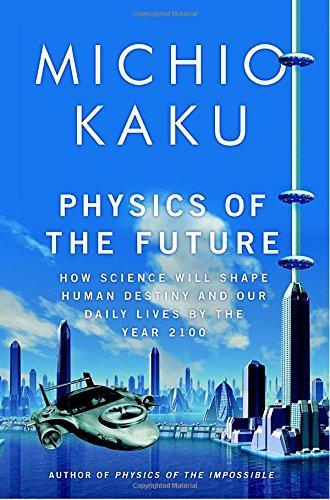Review of 'Physics of the Future: How Science Will Shape Human Destiny and Our Daily Lives by the Year 2100' on 'Goodreads'
4 stars
Al parecer no se trata de un libro sobre la física, versa acerca de los productos que podremos comprar gracias a la tecnología. Lo que es como aburrido. Llamelo "la vida en el año 2100".
Las primeras predicciones son como obvias. Googleglass... Pantallas de pared a pared con skype. (really?) Vamos a ver si la cosa mejora.
/////////////
Definitivamente, el campo de Michio es la física. El libro predice cambios en la medicina, exploración especial, la nanotecnología, y cómo las tecnologías derivadas de la física actual pueden cambiar la vida en el futuro. Un poco desfasado en algunas predicciones sobre el comercio electrónico ( nadie tiene el estómago para leer todos los comentarios sobre una lámpara ), y sobre la economía. Pero en general es un buen libro.

